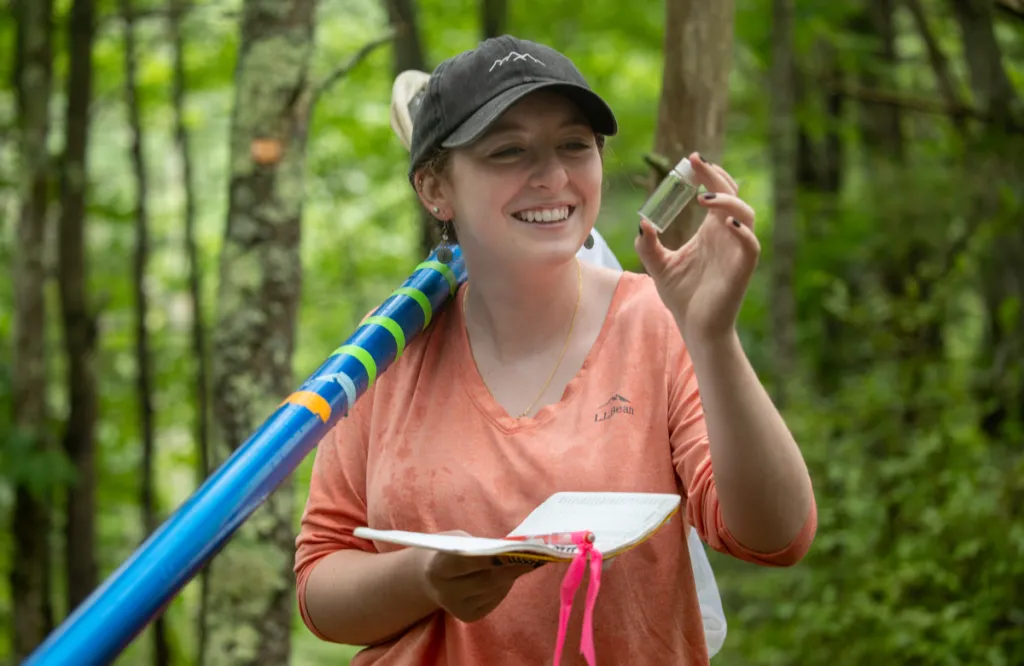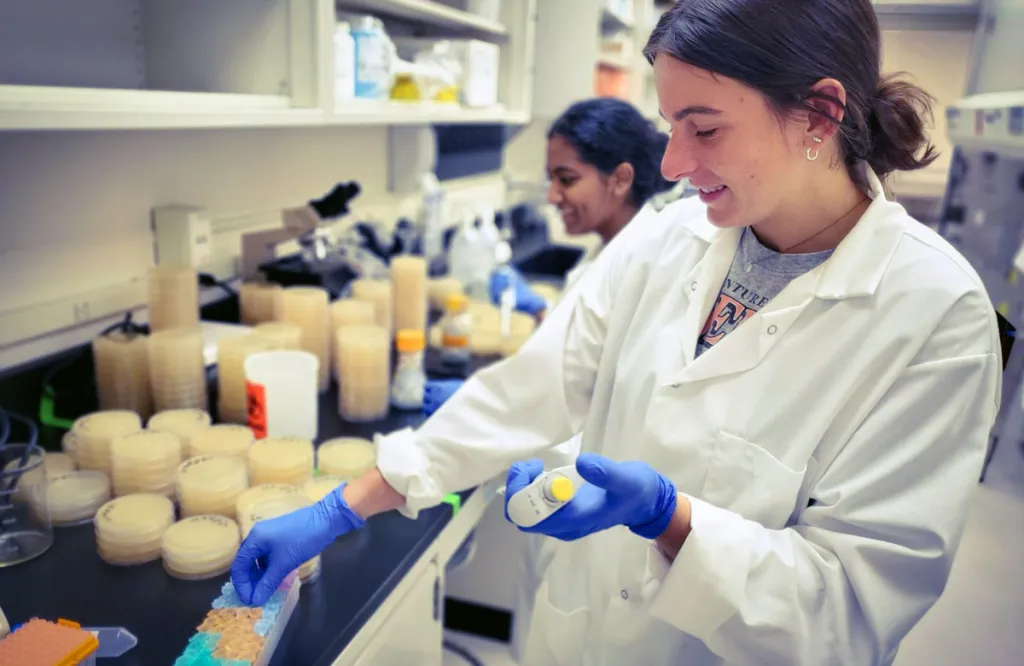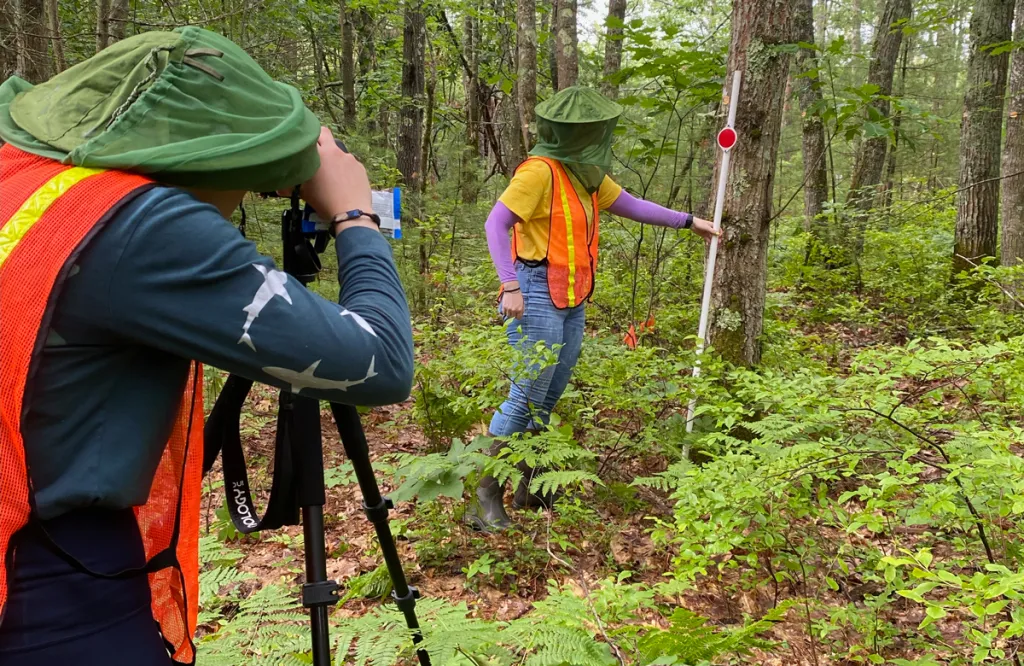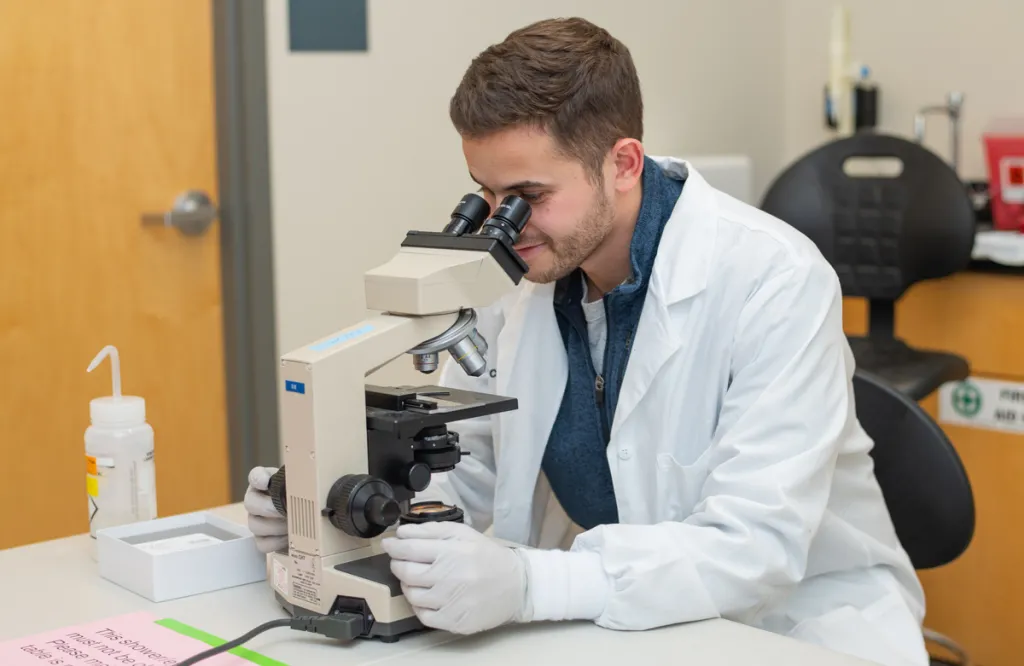Engage in Impactful Research
As a student in the School of Biological Sciences, you have exciting opportunities to get involved with cutting-edge faculty research. You can contribute to advancing scientific knowledge in the areas of Cellular and Molecular Biology, Ecology and Evolutionary Biology, and sometimes even at the interface between these two primary sub-disciplines of biology. Whether you’re pursuing your bachelor’s or master’s degree, you can join faculty research groups, gain hands-on experience, develop critical thinking skills, and contribute to dissemination of scientific discoveries through presentations and publications.


Why should you do research?
Cellular and Molecular Biology Groups
Drosophila Neurogenetics
The Drosophila Neurogenetics group, led by Geoff Ganter, Ph.D., identifies targets for future pain medications using genetic, microscopic, and behavior analysis approaches.
Microbiology
The microbiology group, run by Kristin Burkholder, Ph.D., studies the behavior of bacterial pathogens by using cell culture, microbiological, and microscopy techniques.
Molecular Biology
Led by Lei Lei, Ph.D., the molecular biology group studies developmental neurobiology and molecular evolution using molecular and bioinformatic tools.
Molecular Genetics
Jenn Garcia, Ph.D.’s molecular genetics group identifies mechanisms that regulate gene expression in response to stress using molecular genetics and microscopy.
Fruit Flies and Chronic Pain
Ecology and Evolutionary Biology groups
Chemical Ecology
Led by Ursula Röse, Ph.D. the chemical ecology group investigates chemical interactions of plants, insects, and microbes using mass spectrometry and gas chromatography.
Global Change Ecology
The global change ecology group, led by Greg Zogg, Ph.D., studies how human activities impact plants, microbes, and biogeochemical cycles using field and lab techniques.
Herpetology
Jeff Parmelee, Ph.D.’s herpetology group studies amphibian and reptile ecology and monitors populations through fieldwork and citizen science initiatives.
Molecular Ecology
Steve Travis, Ph.D.’s molecular ecology group analyzes individual, population, species, and community-level diversity and relationships using genetic sequencing.
Tracking Rare Amphibian Species
Grants
Funding to support student (*) and faculty (**) research have come from a variety of sources, including the following:
Cellular and Molecular Biology Area Grants
- Maine Idea Network for Biomedical Research Excellence: A Functional Analysis of RNaseT2 in Yeast (**Garcia)
- National Institute of General Medical Sciences: Ceftriaxone to Prevent Pneumonia and Inflammation after Cardiac Arrest (PROTECT), a Randomized-controlled Trial and Microbiome Assessment (**Burkholder)
- National Institute of Neurological Disorders and Stroke: Investigation of Armadillo/ß-catenin Mechanisms Influencing Nociceptive Sensitivity in Drosophila (**Ganter)
Ecology and Evolutionary Biology Area Grants
- Forest Ecosystem Monitoring Cooperative: Expanding Monitoring Efforts to Include Plant Genetic, Bacterial, and Fungal Diversity (**Zogg, **Travis)
- National Oceanic and Atmospheric Administration: Effects of Anthropogenic Change on Salt Marsh Microbial Structure and Function (*Simon)
- National Science Foundation: The Undergraduate Saco River Biodiversity Observatory, TURBO (**Röse)
- U.S. Geological Survey: Predicting Cattail Hybridization Dynamics in the Prairie Pothole Region of the Upper Midwest (**Travis)


